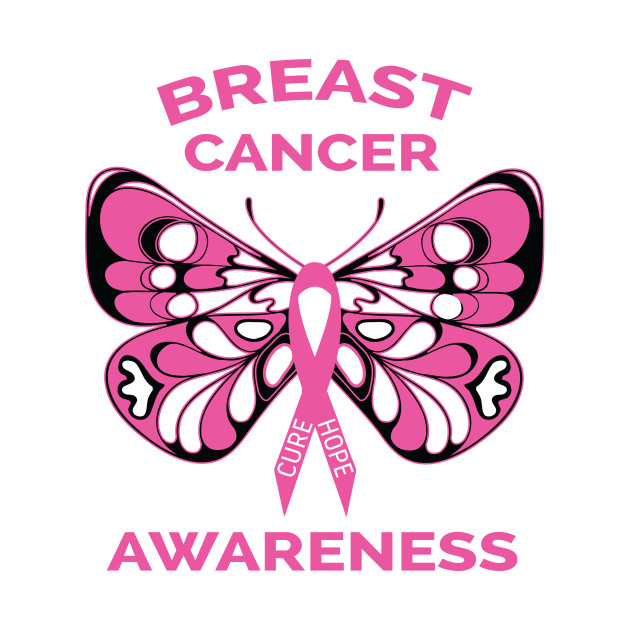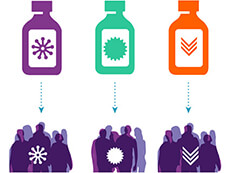|
Magnesium has an effect on more than 300 bodily chemical reactions. This includes maintaining heart health, sustaining blood vessels, boosting and maintaining energy levels, producing new cells and proteins, and enabling enzyme activity.
Sulfur is called nature's "beauty mineral" because it keeps skin smooth and youthful and hair glossy. Sulfur is necessary for the production of collagen and keratin, proteins necessary for the health and maintenance of skin, nails and hair'
$14.95
|
|
Targeted Therapy for Breast CancerAs researchers have learned more about changes in cancer cells that cause them to grow out of control, they’ve developed new types of drugs that target some of these cell changes. These targeted drugs are designed to block the growth and spread of cancer cells. These drugs work differently from chemotherapy drugs, which attack all cells that are growing quickly (including cancer cells). Targeted drugs sometimes work even when chemo drugs do not. Some targeted drugs can help other types of treatment work better. Targeted drugs also tend to have different side effects than chemo. Targeted therapy for HER2-positive breast cancerFor about 1 in 5 women with breast cancer, the cancer cells have too much of a growth-promoting protein known as HER2/neu (or just HER2) on their surface. These cancers, known as HER2-positive breast cancers, tend to grow and spread more aggressively. A number of drugs have been developed that target this protein:
Side effects of targeted therapy for HER2-positive breast cancerThe side effects of these drugs are often mild, but some can be serious. Discuss what you can expect with your doctor. Some women develop heart damage during or after treatment with trastuzumab, pertuzumab, or ado-trastuzumab emtansine. This can lead to congestive heart failure. For most (but not all) women, this effect lasts a short time and gets better when the drug is stopped. The risk of heart problems is higher when these drugs are given with certain chemo drugs that also can cause heart damage, such as doxorubicin (Adriamycin) and epirubicin (Ellence). Because these drugs can cause heart damage, doctors often check your heart function (with an echocardiogram or a MUGA scan) before treatment, and again while you are taking the drug. Let your doctor know if you develop symptoms such as shortness of breath, leg swelling, and severe fatigue. Lapatinib and neratinib can cause severe diarrhea, so it’s very important to let your health care team know about any changes in bowel habits as soon as they happen. Lapatinib can also cause hand-foot syndrome, in which the hands and feet become sore and red, and may blister and peel. Pertuzumab can also cause diarrhea. If you are pregnant, you should not take these drugs. They can harm and even cause death to the fetus. If you could become pregnant, talk to your doctor about using effective birth control while taking these drugs. Targeted therapy for hormone receptor-positive breast cancerAbout 2 of 3 breast cancers are hormone receptor-positive (ER-positive or PR-positive). For women with these cancers, treatment with hormone therapy is often helpful. Certain targeted therapy drugs can make hormone therapy even more effective, although these targeted drugs might also add to the side effects. CDK4/6 inhibitorsPalbociclib (Ibrance), ribociclib (Kisqali), and abemaciclib (Verzenio) are drugs that block proteins in the cell called cyclin-dependent kinases (CDKs), particularly CDK4 and CDK6. Blocking these proteins in hormone receptor-positive breast cancer cells helps stop the cells from dividing. This can slow cancer growth. These drugs are approved for women with advanced hormone receptor-positive, HER2-negative breast cancer and are taken as pills, typically once or twice a day. There are different ways to use these drugs.
Abemaciclib can also be used by itself in women who have previously been treated with hormone therapy and chemotherapy. Side effects of these drugs tend to be mild. The most common side effects are low blood cell counts and fatigue. Nausea and vomiting, mouth sores, hair loss, diarrhea, and headache are less common side effects. Very low white blood cell counts can increase the risk of serious infection. Everolimus (Afinitor)Everolimus is used for women who have gone through menopause and have advanced hormone receptor-positive, HER2-negative breast cancer. It is used along with the aromatase inhibitor exemestane (Aromasin) for women whose cancers have grown while being treated with either letrozole or anastrozole (or if the cancer started growing shortly after treatment with these drugs was stopped). This targeted therapy drug blocks mTOR, a protein in cells that normally helps them grow and divide. Everolimus may also stop tumors from developing new blood vessels, which can help limit their growth. In treating breast cancer, this drug seems to help hormone therapy drugs work better. Everolimus is a pill that is taken once a day. Common side effects of everolimus include mouth sores, diarrhea, nausea, feeling weak or tired, low blood counts, shortness of breath, and cough. Everolimus can also increase blood lipids (cholesterol and triglycerides) and blood sugars, so your doctor will check your blood work periodically while you are taking this drug. It can also increase your risk of serious infections, so your doctor will watch you closely for infection. Everolimus is also being studied for use in earlier-stage breast cancer, with other hormone therapy drugs, and in combination with other treatments. Targeted therapy for women with BRCA gene mutationsOlaparib (Lynparza) and talazoparib (Talzenna) are drugs known as PARP inhibitors. PARP proteins normally help repair damaged DNA inside cells. The BRCA genes (BRCA1 and BRCA2) also help repair DNA (in a slightly different way), but mutations in one of those genes can stop this from happening. PARP inhibitors work by blocking the PARP proteins. Because tumor cells with a mutated BRCA gene already have trouble repairing damaged DNA, blocking the PARP proteins often leads to the death of these cells. Olaparib and talazoparib can be used to treat metastatic, HER2-negative breast cancer in women with a BRCA mutation who have already gotten chemotherapy. Olaparib can also be used in women who have already received hormone therapy if the cancer is hormone receptor-positive. Only a small portion of women with breast cancer have a mutated BRCA gene. If you are not known to have a BRCA mutation, your doctor will test your blood to be sure you have one before starting treatment with this drug. These drugs come in pills that are taken once a day. Side effects can include nausea, vomiting, diarrhea, fatigue, loss of appetite, taste changes, low red blood cell counts (anemia), low platelet counts, low white blood cell counts, belly pain, and muscle and joint pain. Rarely, some people treated with a PARP inhibitor have developed a blood cancer, such as myelodysplastic syndrome or acute myeloid leukemia (AML). Targeted therapy for cancers with aPIK3CA gene mutationAlpelisib (Piqray) is a targeted drug known as a PI3K inhibitor. It can be used along with fulvestrant to treat postmenopausal women with advanced hormone receptor-positive, HER2-negative breast cancer with a PIK3CA mutation that has grown during or after treatment with an aromatase inhibitor. About 30-40% of breast cancers have a mutated PIK3CA gene. Your doctor will test your blood or tumor for this mutation before starting treatment with this drug. This drug comes in pills that are taken once a day. Side effects can include high blood sugar levels, signs of kidney, liver, or pancreatic problems, diarrhea, rash, low blood counts, nausea and vomiting, fatigue, decreased appetite, mouth sores, weight loss, low calcium levels, blood clotting problems, and hair loss. Very severe skin reactions, such as rashes with peeling and blistering, are possible and should be reported to a doctor. Patients with a history of severe skin reactions should tell their doctor before taking alpelisib. |
|
|

OPEN 24 HOURS: ACCIDENT EMERGENCY, LAB SERVICES, IMAGING SERVICES & PHARMACY










